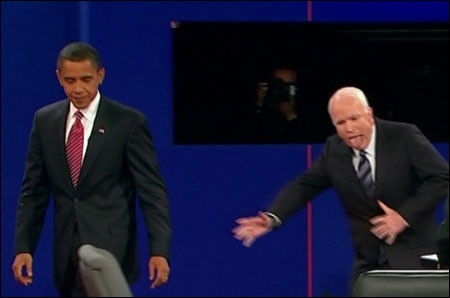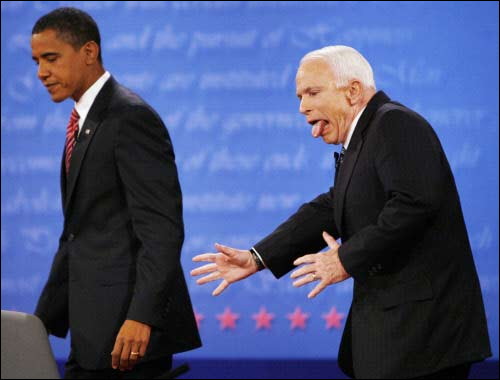Iraqi Prime Minister Nouri al-Maliki wants to U.S. to stay in Iraq for some time, because we keep him in power. But Iraqis want us to get the hell out as soon as possible, and certainly don’t want U.S. soldiers to go around killing people with impunity. And the Iraqi government is somewhat vulnerable to public pressure—in fact, seemingly more than the U.S. government. How can al-Maliki square this circle?
The draft U.S.-Iraq Status of Forces Agreement is now available from the American Friends Service Committee in a translation by Raed Jarrar (pdf) from the Arabic version. It shows how al-Maliki is trying to do it.
First of all, “U.S. forces shall withdraw from Iraqi territories no later than December 31st, 2011.” However, “the Iraqi government is permitted to ask the U.S. government to keep specific forces for the purposes of training and support of the Iraqi security forces…Or, the Iraqi government might ask for an extension [before troops are withdrawn].” (Article Twenty-Five, page 14) So the deadline has no teeth, and the SOFA is already looking forward to U.S. troops staying there even after the “withdrawal.”
Secondly, al-Maliki has been trumpeting his opposition to immunity for U.S. troops, and claims this agreement doesn’t provide that. But let’s look at the fine print (in Article Twelve, pages 7-8). To start with:
U.S. has the primary legal jurisdiction over U.S. armed forces members and civilian members concerning issues that occur inside the installations and areas agreed upon, and while they are on duty outside the installations.
Iraq is in charge only under extremely limited circumstances:
Iraq has the primary legal jurisdiction over armed forces members and civilian members in cases of major and intentional crimes…that takes place outside areas and installations agreed upon while troops are off duty.
Moreover, any U.S. personnel arrested under these extremely limited circumstances will be held by the U.S.:
All members of U.S. armed forces or civilian members must be handed over to the U.S. as soon as they are arrested by the Iraqi authorities. When Iraq is exercising its legal jurisdictio…the U.S. authorities shall manage the tasks of detention of U.S. armed forces or civilian contractors.
And who decides whether these extremely limited circumstances apply? That would be the U.S.:
The U.S. authorities [will] submit, in accordance to paragraphs 1 and 2 of this article, a declaration explaining whether the alleged crime occurred while suspects where off duty or on duty. In case the Iraqi authorities think the conditions require such a decision to be reviewed or change…the U.S. authorities takes into consideration all the conditions, events and any other information submitted by the Iraqi authorities that might have an effect on changing the U.S. authorities decision.
Will this teeny-tiny figleaf be enough to get the Iraqi parliament and Iraqis generally to submit to the SOFA agreement? Probably not. According to Al-Hayat, even ISCI, part of al-Maliki’s main bloc of support in the Iraqi parliament, has serious reservations.
ALSO: Note that the SOFA has been published in an Iraqi newspaper, but not in any American ones. So not only is the Iraqi legislative branch more independent than ours, their media is too.




